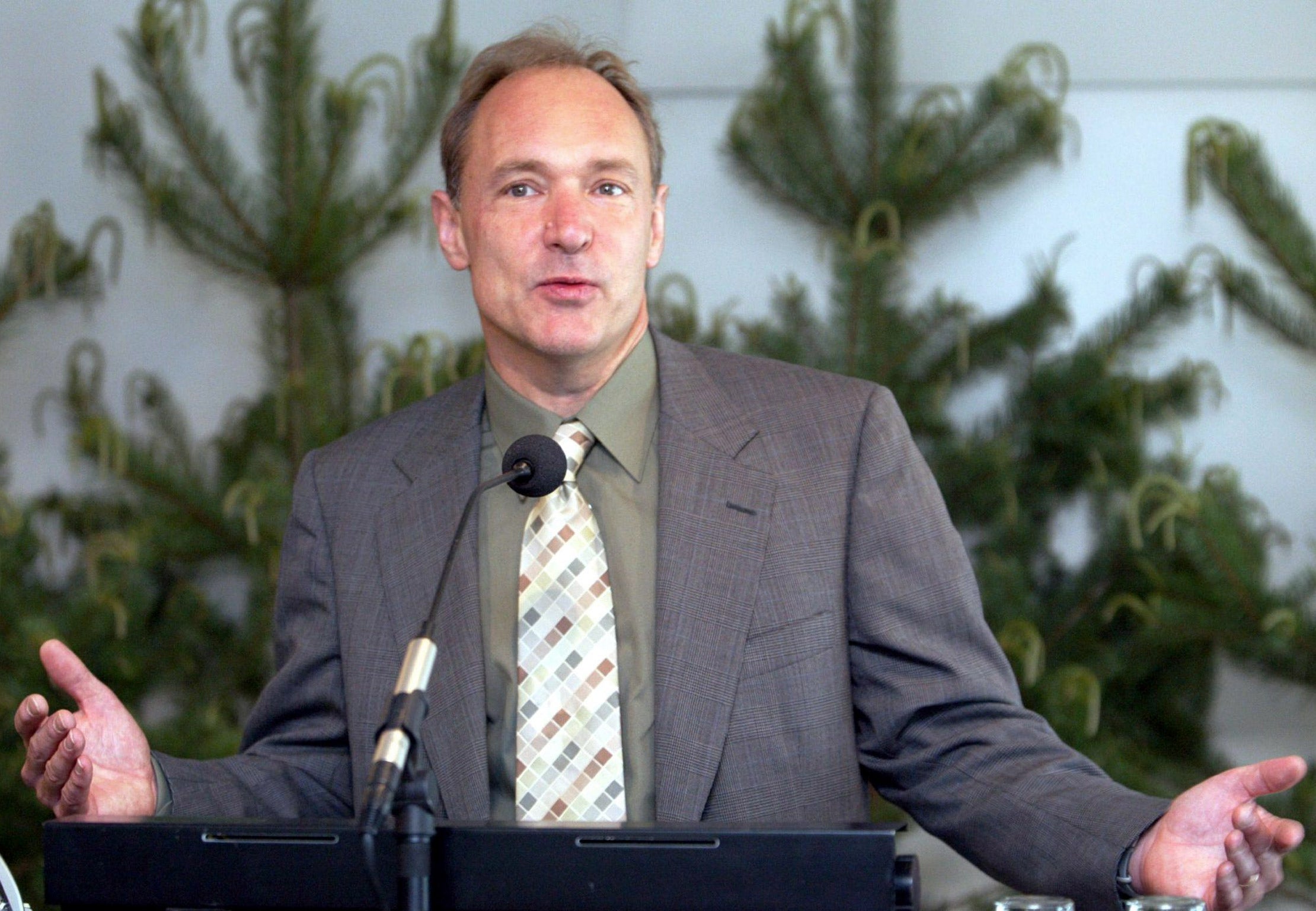Web at 25: Sir Tim Berners-Lee calls for online 'bill of rights' to protect internet users
Inventor of world wide web says time has come for internet users to fight back against government surveillance

Your support helps us to tell the story
From reproductive rights to climate change to Big Tech, The Independent is on the ground when the story is developing. Whether it's investigating the financials of Elon Musk's pro-Trump PAC or producing our latest documentary, 'The A Word', which shines a light on the American women fighting for reproductive rights, we know how important it is to parse out the facts from the messaging.
At such a critical moment in US history, we need reporters on the ground. Your donation allows us to keep sending journalists to speak to both sides of the story.
The Independent is trusted by Americans across the entire political spectrum. And unlike many other quality news outlets, we choose not to lock Americans out of our reporting and analysis with paywalls. We believe quality journalism should be available to everyone, paid for by those who can afford it.
Your support makes all the difference.The inventor of the world wide web Sir Tim Berners-Lee has marked its 25th anniversary by calling for users to be protected from online surveillance by a global internet “bill of rights” similar to the Magna Carta.
Sir Tim suggested that the opportunity for all to have unimpeded access to an independent web should be treated as an issue of human rights, and said it was time for the world to take a stand in the wake of ongoing revelations about government intrusion online.
Speaking in an interview broadcast on BBC Breakfast a quarter of a century since he drafted the first proposal for a “universal linked information system”, he said we need to “defend the principles that have made the web successful”.
On the dangers of feeling like someone is “looking over our shoulder” when we communicate online, Sir Tim said: “The people of the world have to be constantly looking out for it - constantly making sure, through action, protest, that it doesn't happen.
“Are we going to continue on the road and just allow the governments to do more and more control, more and more surveillance?
“Or are we going to going to set up a bunch of values? Are we going to set up something like a Magna Carta for the world wide web and say, actually, now it's so important, so much part of our lives, that it becomes on a level with human rights?”
With three in five people worldwide still without access to the internet, Sir Tim said: “I believe we can build a web that truly is for everyone: one that is accessible to all, from any device, and one that empowers all of us to achieve our dignity, rights and potential as humans.”
Sir Tim also told BBC Breakfast he shared concerns over the use of the web for elements such as child pornography. He said the internet was “humanity connected” and showed the “wonderful” but also the “ghastly” side of humanity.
“I don't have a lot of sympathy with people who say there is so much rubbish on the web... if it is rubbish then don't go and read it, go and read something else,” he said.
Join our commenting forum
Join thought-provoking conversations, follow other Independent readers and see their replies
Comments